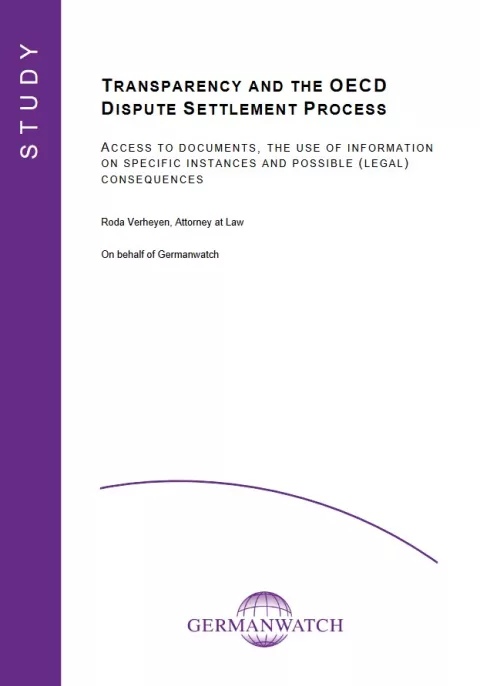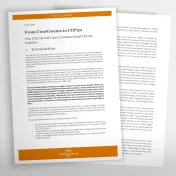
Roda Verheyen, Attorney at Law
On behalf of Germanwatch
Summary
This concise study shall help clarify the rights of, in particular, non-government organizations (NGOs) to disclose documents by the participants of, and facts gathered during, dispute settlement proceedings under the OECD Guidelines; as well as whether other, third parties, have a right to documents from dispute settlement proceedings. For this purpose, the dispute settlement mechanism shall be described and divided into three stages.
In the first stage, before the actual dispute settlement proceedings described in para. C-2.d, no special confidentiality requirements are in effect. The complaint itself, as well as, where appropriate, first statements by the National Contact Point and the company concerned may be made public and, as the case may be, access may be requested on the basis of Art. 29 of the Administrative Procedures Act (VwVfG) or Art. 3 (1) of the Environmental Information Act (UIG).
While dispute settlement proceedings are underway, they are subject to the confidentiality requirement specified in the Procedural Guidance under section C-4.a, which state that the "confidentiality" of the proceedings shall be maintained. However, this is not an absolute confidentiality, but must rather - in keeping with the tension between transparency and confidentiality found in the Guidelines -be decided on a per case basis.
After the conclusion of the proceedings, no confidentiality requirements - or only weak ones - are in effect; in particular the general rule stated in Procedural Guidance C-4.b, according to which the NCP will "after consultations [...] make publicly available the results" of the proceedings. This is not dependent on the agreement of all parties.
A table provides an overview of individual activities allowed and indicates points to be considered where applicable.
In the final section, it is made clear that under current German law, non-participants are generally entitled to disclosure of documents generated before and during proceedings under the Environmental Information Act and the Freedom of Information Act. The confidentiality requirements of the OECD Guidelines do not apply in this case. Exceptions to entitlement must however be judged on a case by case basis.
Access to documents, the use of information on specific instances and possible (legal) consequences



